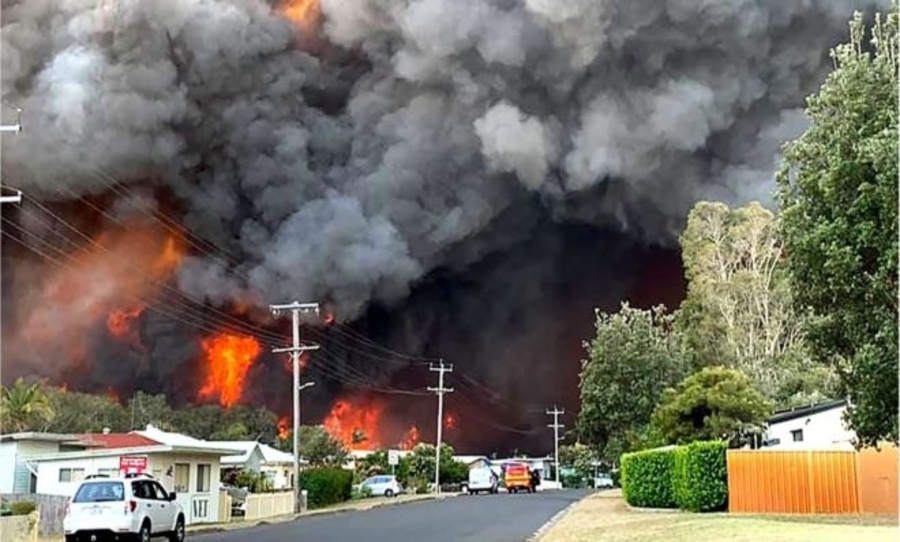“For those attending AdaptNSW today, public affairs has issued advice not to discuss the link between climate change and bushfires. Refer questions in session and plenaries to bushfire reps.”
That’s the email NSW bureaucrats received soon after an AdaptNSW conference on climate change began. In other words, “Let’s stick our head in the sand and ignore the crisis to curb climate activism.”

An email sent to NSW bureaucrats is causing outrage as bushfires ravage the country’s east coast.
The theme for the AdaptNSW 2019 Forum was ‘Actions in adaptation: building resilience in NSW.’ Material for the AdaptNSW Forum said it was “a one-day event which brings together climate change researchers and practitioners from government, industry and universities to showcase NSW’s leading research, tools and resources to help minimise the impacts of climate change in local communities”.
On the AdaptNSW website, there is – surprise! – a page on bushfires, under ‘Impacts of climate change’. It is said that:
“Understanding the impacts of climate change on bushfire risk is important, as bushfires affect communities and the environment. Fire, however, is complex. The risk of bushfire in any given place depends on:
- vegetation – there needs to be enough vegetation (fuel)
- dryness – the fuel needs to be dry enough to burn
- weather – the weather needs to be favourable for fire to spread
- ignition source – the fire needs something to start it
For a fire to occur, all four of these conditions must be met. Climate change is expected to impact them in different ways.
Projections of climate change impacts on bushfire risks need to integrate the diverse strands of evidence, including the many interactions and feedbacks between such factors. Research is underway to address such these knowledge gaps.”
It’s hard to say what are the exact causes of the bushfires. But researchers claim that climate change is definitely part of the puzzle and also, climate change is coal’s most serious, long-term global impact.
“Chemically, coal is mostly carbon, which, when burned, reacts with oxygen in the air to produce carbon dioxide, a heat-trapping gas. When released into the atmosphere, carbon dioxide works like a blanket, warming the earth above normal limits,” says The Union of Concerned Scientists. Add a hot, windy, low humidity weather and you have a bushfire.
Scott Morrison has vigorously brushed aside calls to discuss the role of climate change in the bushfires. “The time to have those policy discussions are not in the middle of an operational response” when lives are at risk, he said Tuesday.


